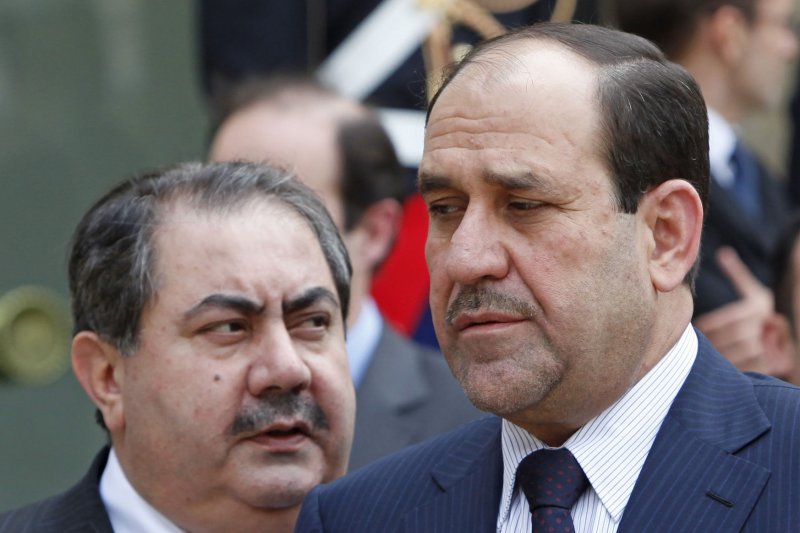1 of 2 | Iraqi Prime Minister Nouri al-Maliki (R) and Iraqi Foreign Affairs Minister Hoshyar Zebari address reporters at the Elysee Palace after meeting with French President Nicolas Sarkozy in Paris on May 4, 2009. (UPI Photo/ David Silpa) |
License Photo
BAGHDAD, July 11 (UPI) -- Iraqi Prime Minister Nouri al-Maliki confirmed Friday he has replaced Foreign Minister Hoshyar Zebari, a Kurd, with a member of his own Shiite bloc, Hussain Shahristani.
Maliki's decision to replace Zebari further escalates tensions between the Iraqi central government and the the semi-autonomous Kurdish region in Iraq's north.
On Wednesday, the prime minister alleged in a televised address that Erbil, the capital of the semi-autonomous Kurdistan Regional Government, was "becoming a base for the operations of the Islamic State and Baathists and al-Qaida and the terrorists."
Infuriated, the Kurds announced on Thursday the Kurdish bloc in Iraq's central government would boycott Cabinet meetings.
One Kurdish regional government official said that Maliki's decision to remove Zebari from his position in the central government suggests the end of inclusive governing.
"With this step, the prime minister doesn't leave any room for power sharing," said Kurdistan Regional Government Foreign Affairs Minister Faleh Mustapha. "Had our ministers resigned from the government or if we had withdrawn entirely from the government, it would be different, but we are still participating in the political process."
At dawn on Friday, Kurdish Peshmerga forces seized control of two key oil facilities in the north previously run by the Iraqi government.
As Iraq battles Sunni insurgents, it continues to grapple with government formation. Iraq's parliament has not yet been able to agree on candidates to fill the senior positions of parliamentary speaker (typically a Sunni), president (typically a Kurd), and prime minister (typically a Shia).















